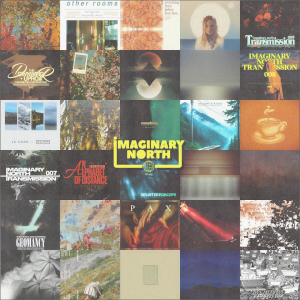With Lifeless Ground, Sjellos plunges listeners back into the dark, mechanical abyss introduced on his last album Transmission Lost (2013), intensifying the grim sense of desolation and uncertainty. Each attempt to move brings flashes of forgotten memories, or fractured images of a past life.
The texture of the ground beneath you feels foreign
The universal battlefield is a historical source continuously demanding attention, interpretation and understanding. Lifeless Ground, like any unspoken but otherwise recorded account, brings to the surface the synergy between technologies. As they piece together, you question not just where you are but who you are. The urge to preserve certain battlefields as sites of historic importance would demand that someone will learn from the sound of these enduring valued musical signals from history’s growing lost population of dead warriors.
It’s been decades since you felt anything familiar; now, even the texture of the ground beneath you feels foreign, as if you’ve stepped into another world—or become someone else. Life is full of battles, bravery, and leadership, sometimes it can be tough to keep going. The belief that a location is impregnable will lead to it being chosen for a defensive position, but that may actually produce an uncertain feeling of deadly complacency. Some locations are chosen for certain features giving advantage to one side or another. The actual location of these battles will always be debated by future historians. Death is always patient, and usually comes as a surprise on the battlefield.
The machines have gained dominance ::
Fade in, a strange hum and dark deep chamber echoes with activities, a battlefield is typically the location of large numbers of deaths. “Coma State” (5:27) suggests rushing sounds and clanking, something bad is awakening from an extended slumber. Below us a beat starts, action follows, the awakening slowly succeeds, calling briefly and then waiting. Pounding or footsteps, I fear that something big is getting closer, “Machines Walking” (4:05). Crossing obstacles remains a problem. To understand a battle, one has to understand the battlefield. Steady dark horror makes me feel the hopeless dread, the machines have gained dominance. Battles and troop maneuvers bring stronger forces, now the explosions start and the booming footsteps grow larger and closer.
With a gasp of wires it sounds like the portal has come undone, “Circle of Darkness” (5:34) bleeds activity, with metal objects the rattling hum increases. A pile of bones, including those of cavalry horses, is what remains on the battlefield. The harder the conflict, the more glorious the triumph. “Collapsed” (5:08) leads us into falling hopelessly, hissing tension, the throb and grind of these melodic shadows builds. Gentle death is bumbling in the dark, while our remainders are reaching for “Ascension” (6:38). Some things will hurt. Some things will leave you with scars. Some things will haunt your nightmares. Some things will be burned into memory. The warriors will tell you that life always has been and always will be a battleground; and if it were not so, existence would come to an end. They will linger forever, on their way to heaven. To Valhalla.

The tangible domains of land, sea, and air ::
Deep buzzes and drone-insects call, “Forgotten” (4:40) remains in my mind. A soldier will fight long and hard for a bit of colored ribbon, and will be made to suffer under a shower of projectiles without being able to return evil for evil. Hollow and empty groans of machines start adding tension. We humans will always face death on the battlefield of life or within the depths of our only soul. This ritual warfare involves battles on traditional fighting grounds and are always bound by rules intended to minimise personal casualties. Slow quiet activity resumes, “Infusion” (5:56) suggests fluids mingling in the war machine. The concept of thinking and fighting in the industrial age can be described as the “Old Battlespace,” in the tangible domains of land, sea, and air. Machines call to us, wrapped in a fog of greater or lesser uncertainty. There is no instance of a nation benefitting from prolonged warfare, “Wired Flesh & Steel” (4:55) is explosive from the jump, suspense builds and breaks in various ways. The fog of war (German: Nebel des Krieges) is the uncertainty in situational awareness experienced by participants in military operations, the state of ignorance in which commanders frequently find themselves as regards the real strength and position, not only of their foes, but also of their friends.
Becoming music with a pulse and swaying one way and then back again, in the end returning to a dormant state. Heartbeat activity with metal objects, a hidden choir hums out, rumbling and machine sounds resume, “Transmission Lost” (3:42) fails to reduce uncertainties concerning the enemy, environment, and terrain for all types of operations, the elimination of the enemy’s capability by fighting in a coherent manner before deploying forces rings hollow and empty.
As you strain to listen, faint echoes reverberate through the bleak silence, but their source remains hidden. Let us all hail the final track, “Hibernation” (4:35), where all that remains is an ethereal cave atmosphere. Here, every sound, every shift of air, hints at something unknown and unsettling lurking just out of reach—or perhaps closer than you dare to imagine.
With Lifeless Ground, Sjellos plunges listeners back into the dark, mechanical abyss introduced on his last album Transmission Lost (2013), intensifying the grim sense of desolation and uncertainty. Each attempt to move brings flashes of forgotten memories, or fractured images of a past life. Something unidentifiable has changed, leaving only a path ahead, one marked by the relentless pull of transformation.
Written, Produced, Performed: Tibor Knopf
Mastering & Artwork: Simon Heath
Lifeless Ground is available on Cryo Chamber. [Bandcamp]








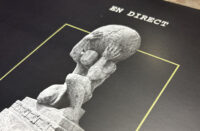
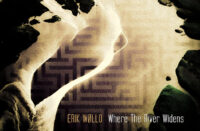
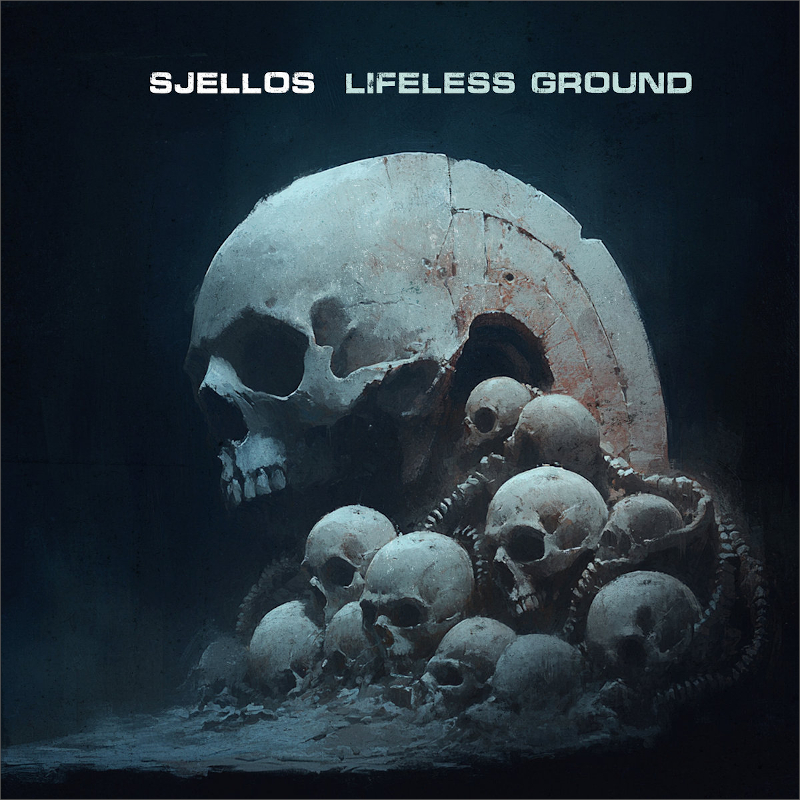
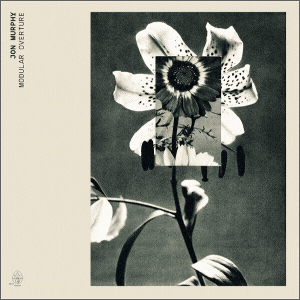

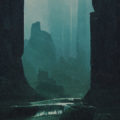
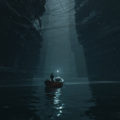










![Romanowitch :: A critical season substitute (glitch.cool) — [concise]](https://igloomag.com/wp/wp-content/uploads/2025/03/romanowitch-a-critical-season-substitute_tape_feat-75x75.jpg)

